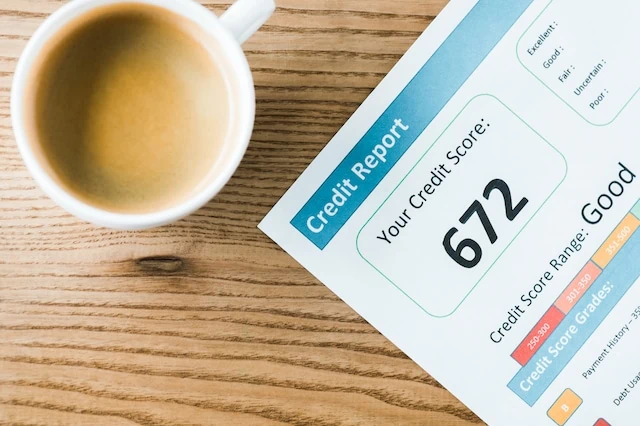When children graduate from high school, they typically have a decent grasp on subjects such as science, math, history, and English. Every one of those subjects is important in their own way, and can influence a person throughout their entire lives.
But many kids enter adulthood without a firm grasp on an essential subject that affects virtually everyone on a day-to-day basis: finances.
Only roughly half of the country requires a personal finance course for high school students. While a little of that gap is filled by parents who teach their kids about critical financial topics, many parents don’t have the time or ability to pass on concepts like saving, budgeting, and investing.
So, why do so many schools fall short? Well, adding these courses can reduce graduation rates (which schools are pressured to keep high), and it can be difficult to find qualified teachers (and, ahem, pay them properly). And in some unfortunate cases, schools simply don’t see the value.
Regardless, a host of surveys and studies clearly show that a large number of Americans are entering adulthood unprepared to tackle at least some financial responsibilities. The fallout of that? Irresponsible spending, mounting debt, inadequate savings, and financial shortfalls come retirement.
All of that is to say: Personal finance should be taught in every school. And as more districts wake up to this reality, these are the most pressing financial topics they should consider adding to their curricula.
Money Lessons We All Need to Know

Whatever you do, don’t blame students—they want to learn personal finance.
According to a 2024 Intuit survey, 85% of American high school students are interested in learning financial topics in school. And of those who already do, 95% find the curriculum useful.
Listen. There’s endless information online, including on our site. But sometimes financial concepts fall the way of “you don’t know what you don’t know.”
These money-related topics are the ones most people encounter at some point, so it’d be extremely helpful for them to be taught at school.
1. The Power of Compounding

Very few things highlight the importance of saving money more than the concept of compounding and compound interest.
It’s one thing to explain to a child that if they put away money now, they’ll be able to use that money later. But the idea reaches a new level when you’re able to demonstrate that their money can actually generate more money over time, and you can teach them to figure out the extent to which compounding could build their wealth.
A kid that saves $1,000 for college in a shoebox will still have that $1,000 in 10 years, and that’s useful. But if a kid is taught the power of compounding, they’d know to stash it in a bank. That same $1,000, put to work in a high-yield savings account with a 5% annual percentage yield (APY) paid monthly, would gain $647 in value (or nearly 65%!) in the same 10 years, becoming $1,647.
And if they contributed just $10 per month during that time, they’d be sitting on nearly $3,200!
That’s a lot more useful, and a lot more motivating!
YATI Tip: If they’re not teaching this in school, you can use Investor.gov’s compound interest calculator to show your child how compound interest works.
Related: Best Cash Alternatives [Get Yield on Short-Term Investments]
2. How to Budget

There’s no single right way to budget. People use different budget templates, focus on different time frames, and even have different budgeting strategies. What really matters is having a plan, following through with that plan, and learning how to adjust that plan as your circumstances change.
Of course, all of that is harder to do when you don’t even know where to start.
The best time to start learning the basics of budgeting is when you start receiving money, whether that’s an allowance from your parents or your first job as a teenager.
Unfortunately, many people go for years making money without knowing how to budget, failing to learn until well into adulthood. In many cases, adults don’t learn about budgeting until they run into financial issues. In a 2023 Debt.com survey, nearly a quarter of respondents (23%) said debt “prompted them to start budgeting.” Clearly, budgeting is useful, though, as 80% said a budget helped them “get out or stay out of debt.”
Budgeting won’t put an end to every financial struggle. But teaching kids how to budget in school would go a long way in preventing a lot of financial headaches.
Related: 20 Expenses to Cut From Your Budget
3. How Credit Cards Work

Credit cards are a ubiquitous tool in American finance—82% of American adults had a credit card in 2023, according to the Federal Reserve, and nearly three-quarters of us obtain a credit card by age 25.
But credit cards also enable easy reckless spending, leading some adults into debt. Roughly half of all credit card holders carry debt over from one month to the next—a phenomenon that also factors in some of the financial difficulties Americans face, to be sure, but also partly reflective of poor credit card habits.
While kids can’t sign up for their own credit card until they’re 18, they can be put on kids’ credit cards and other spending accounts, and even be authorized users on their parent’s credit cards. So there’s no reason why kids shouldn’t be taught about the benefits and dangers of credit cards.
Schools should tackle topics such as responsible usage and how interest accrues. And, of course, they should learn about a very tightly related topic …
Related: 10 Best Debit Cards for Teens [Reviewed by a CPA + Father]
4. How Credit Scores Function

Credit scores, as a topic, goes hand in hand with credit cards, and they’re one of the most critical financial topics you can study.
They’re also one of the least understood by younger Americans.
According to a national survey by data analytics and credit score provider FICO, “the majority (90%) of Americans say that they at least somewhat understand what a credit score is,” but that number is heavily weighted down by Gen Zers, where only 80% believe they have that level of knowledge.
Credit scores are a vital factor in Americans’ ability to get a mortgage, rent an apartment, be approved for auto and other loans, and even be hired for certain jobs. Plus, they also help determine how much you’ll pay for mortgages and other loans—a good credit score can theoretically save a person hundreds of thousands of dollars in interest over the course of their life.
Sounds like an awfully important and impactful financial topic to teach our kids in school.
Related: Best Savings Account Alternatives [9 Other Ways to Save]
5. How Taxes Work

Live long enough, and at some point, you’ll hear or read the Benjamin Franklin quote, “… in this world nothing can be said to be certain, except death and taxes.”
And yet, Americans are pretty darn uncertain about how taxes work.
Consider this: According to a 2023 poll from the Associated Press-NORC Center for Public Affairs Research and the University of Chicago Harris School of Public Policy, only 1 in 4 respondents say they understand “extremely” or “very well” how federal income tax is calculated. Meanwhile, only 2 in 10 say they have a similar grasp on local property taxes, and only 3 in 10 understand state sales taxes to that extent.
Just about every American will be impacted by taxes at some point in their life. And for many Americans, taxes will eat a meaningful portion of their lifetime earnings. No one should be caught by surprise by taxes—how they work should be taught in every school.
Related: Federal Tax Brackets and Rates [2023 + 2024]
6. Common Financial Scams (And How to Avoid Them)

Anyone can fall victim to financial scams—and increasingly, they are. Federal Trade Commission (FTC) data shows that consumers lost over $4.6 billion to investment scams in 2023, up 21% from the previous year.
However, while some people think only older adults fall prey to financial scams, people from every age group are affected. In fact, members of Gen X, Millennials, and Gen Z young adults were 34% more likely to report losing money to fraud than people age 60 and older, says the FTC. Additionally, younger adults were four times more likely to report money loss from an investment scam.
Teaching kids about financial scams while they’re in school won’t 100% protect them from fraud going forward. New technologies breed new scams, and even old scams evolve over time.
But if students learn about the importance of staying vigilant around technology and their finances, and learn the common patterns of fraudsters, those lessons should reduce the chances they fall victim to financial scams throughout adulthood.
Related: 7 Best Student Checking Accounts
7. How Inflation Works

Every year, Gallup has Americans rate their concerns about different national issues as part of its Environment poll. The 2024 results showed that most Americans (55%) worry “a great deal” about inflation.
In other words, among 14 different issues, inflation was chief among Americans’ concerns.
And why shouldn’t it be? Inflation impacts the price of virtually everything you’ll buy across your entire life. It impacts how your investments perform. It determines how much of a return you need on your investments to keep from losing spending power.
Inflation should be a can’t-miss topic for any school putting together a financial curriculum.
Related: How to Start a College Fund [529s + More]
8. The Importance of an Emergency Fund

Common financial advice states that people should have an emergency fund large enough to cover at least three to six months’ worth of expenses. Most Americans do not have that much money set aside. Many Americans couldn’t cover even one month.
The Federal Reserve routinely puts out a Report on the Economic Well-Being of U.S. Households. Its 2023 report, released in May 2024, provides information on the largest emergency expense American adults could handle using only their savings. The results were as follows:
- Less than $100 = 18%
- $100 to $499 = 14%
- $500 to $999 = 10%
- $1,000 to $1,999 = 10%
- $2,000 or more = 48%
An emergency fund ensures that a job loss, medical emergency, unexpected car or home repair, natural disaster, or another event won’t ruin you financially. Without this money, people can quickly fall into debt, which can be challenging and expensive to escape.
Explaining and stressing the importance of an emergency fund wouldn’t take much time, but it absolutely belongs in any financial course taught in schools.
Related: 25 Summer Jobs for Teens [Start Your Job Search Here]
9. Investing Basics

You don’t need to be Warren Buffett to significantly improve your financial status through the power of investing. But it helps to understand both the importance of investing, as well as basic best practices to keep you from imploding your nest egg.
The good news? Americans invest. Exact numbers vary by study, but roughly 60% of Americans have some exposure to the stock market.
But that doesn’t mean they understand it.
In 2022, Stash conducted a State of Money in America survey, fielded by global market research provider Prodege. Only 13% of poll respondents said they feel very comfortable in their ability to make investment decisions. And only 41% said they feel even somewhat confident.
Information is the key to confidence, so lessons in investment basics at a young age would go a long way in making people feel more prepared. Better still? Teens in school would almost certainly be receptive. According to Fidelity’s 2023 Teens & Money Study, 75% of teens age 13-17 say investing is important to them.
Related: The 7 Best Index Funds for Beginners
10. Best Practices for Retirement Savings

OK. Retirement might seem like an eternity away for most kids. But the younger a person understands the importance of saving for retirement—and starts saving for retirement—the better.
As it stands right now, most Americans aren’t fully prepared to handle their retirement savings.
The Goldman Sachs Asset Management Retirement Survey & Insights Report 2023 found that while nearly half of those surveyed manage their own retirement savings, only 13% successfully answered all five of the poll’s financial literacy questions. (Interestingly, the fewer correct answers a respondent provided, the likelier they were to manage their own savings!)
A different poll, conducted by OnePoll for Beyond Finance, found that almost half of respondents (43%) were unclear on what a 401(k) plan is—despite the fact that 401(k)s are one of the most popular types of retirement accounts.
Most Americans would be best off if they knew how to save for retirement as soon as they were able to—at the latest, by the time they got their first job that offered a 401(k). The way to get there is teaching kids about retirement savings while they’re in school.
Related:








